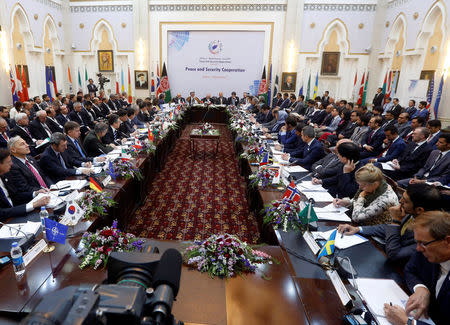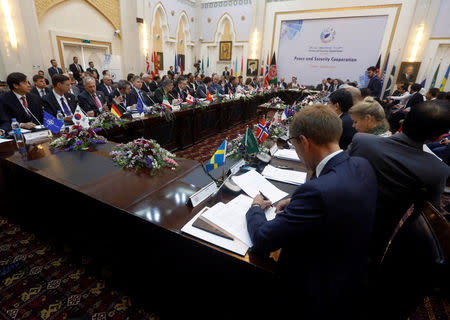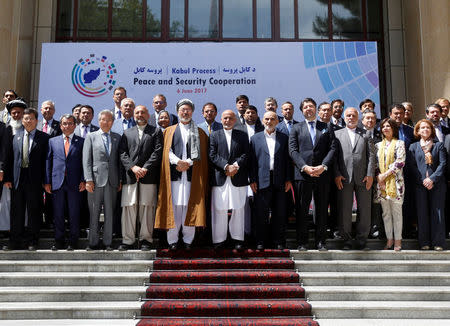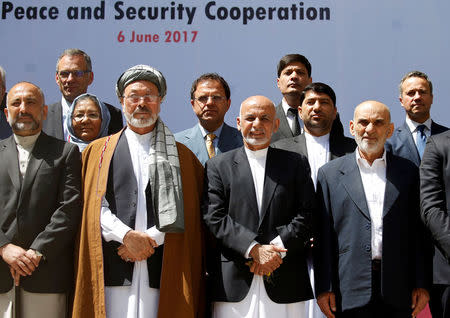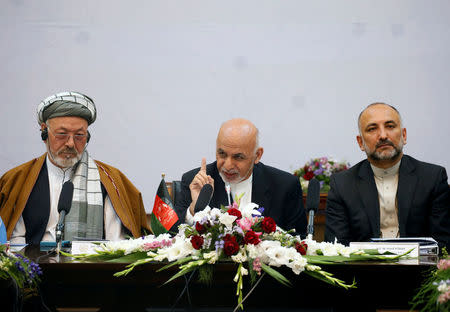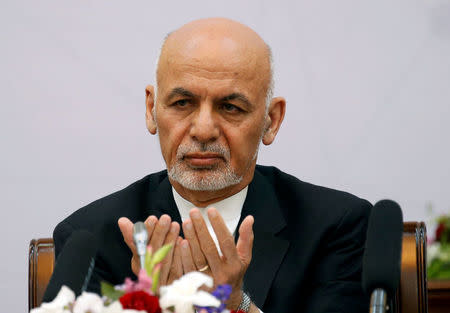Foreign delegations meet in Afghan capital after bloody week
By Josh Smith and Mirwais Harooni KABUL (Reuters) - Afghan leaders met officials of two dozen foreign governments and institutions on Tuesday, launching a so-called Kabul Process aiming to set the stage for peace talks and clinch an international pact to end "cross-border terrorism". After a week of violence that included the deadliest ever attack on the capital of Kabul, President Ashraf Ghani said the meeting would be more than a ceremonial effort. But with domestic tension high, international plans in flux, and the insurgency as powerful as ever, starting any peace process may be an uphill battle. Underscoring the volatile situation, at least one rocket struck an Indian diplomatic compound in Kabul, as the delegations met a few blocks away. Speaking to the diplomats, Ghani said the attacks in Afghanistan were part of the violence that had struck foreign cities around the world, most recently in London, where three militants drove a van into pedestrians on Saturday before attacking people with knives. Afghanistan is on the front line of a global war against such violence, he said. "We're fighting 20 transnational terrorist groups on your behalf," Ghani said. "What we need is an agreement on regional security." Since the international military mission declared an end to its combat mission in 2014, the Taliban have made steady gains. As of late last year, the Taliban contested or controlled about 40 percent of the country, according to U.S. government estimates, leading some observers to doubt the group would be willing to negotiate any time soon. Ghani said if the Taliban did not soon begin negotiations, he would seek new sanctions against the group as a sponsor of terrorism. "This is the last chance, take it or face the consequences," he said. Afghanistan accuses elements in Pakistan, worried about old rival India gaining influence in Afghanistan, of providing support for militant groups like the Taliban, an accusation Pakistan denies. "What will it take to convince Pakistan that a stable Afghanistan helps them and helps our region," Ghani said. MORE U.S. TROOPS? Ghani said Afghanistan had provided its preconditions for negotiations to the Taliban, but it remains unclear whether the group's leaders represented all factions. A spokesman for the Taliban said he was not prepared to make immediate comment on the conference. The militants have said no talks are possible until all foreign troops leave. The last significant peace effort foundered in 2015 when news broke that long-time Taliban leader Mullah Mohammad Omar had died. The push for a new peace process comes as U.S. President Donald Trump has yet to announce his plans for the region, with at least 8,400 American troops training Afghan forces and conducting counterterrorism operations. Another 6,000 foreign troops contribute to the advising mission. U.S. military commanders have proposed sending 3,000 to 5,000 more advisers to Afghanistan in a bid to break the "stalemate". U.S. Charge d'Affaires Hugo Llorens, who is overseeing the American embassy as no new ambassador has been nominated by Trump, said the conference was a chance to send the message that "the enemies of Afghanistan cannot win". "The conference will be a visible reminder to all those who seek to harm Afghanistan that the Afghan people are never alone, especially in the wake of last week’s attack," Llorens said in a statement. But some analysts were skeptical that the Kabul Process meetings would lead to peace talks. "Signing mutual non-interference or anti-terror support agreements won't change anything," said Thomas Ruttig, co-director of the Afghanistan Analysts Network, noting that similar accords had been signed in the past. (Reporting by Josh Smith; Editing by Robert Birsel)
